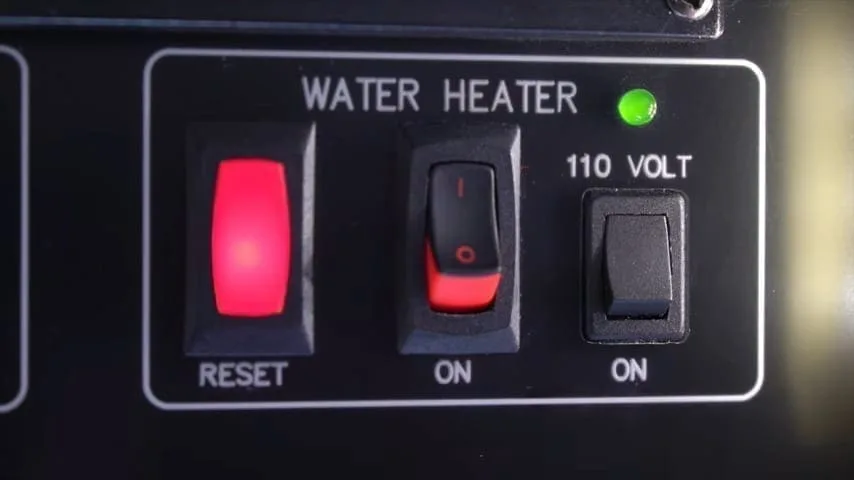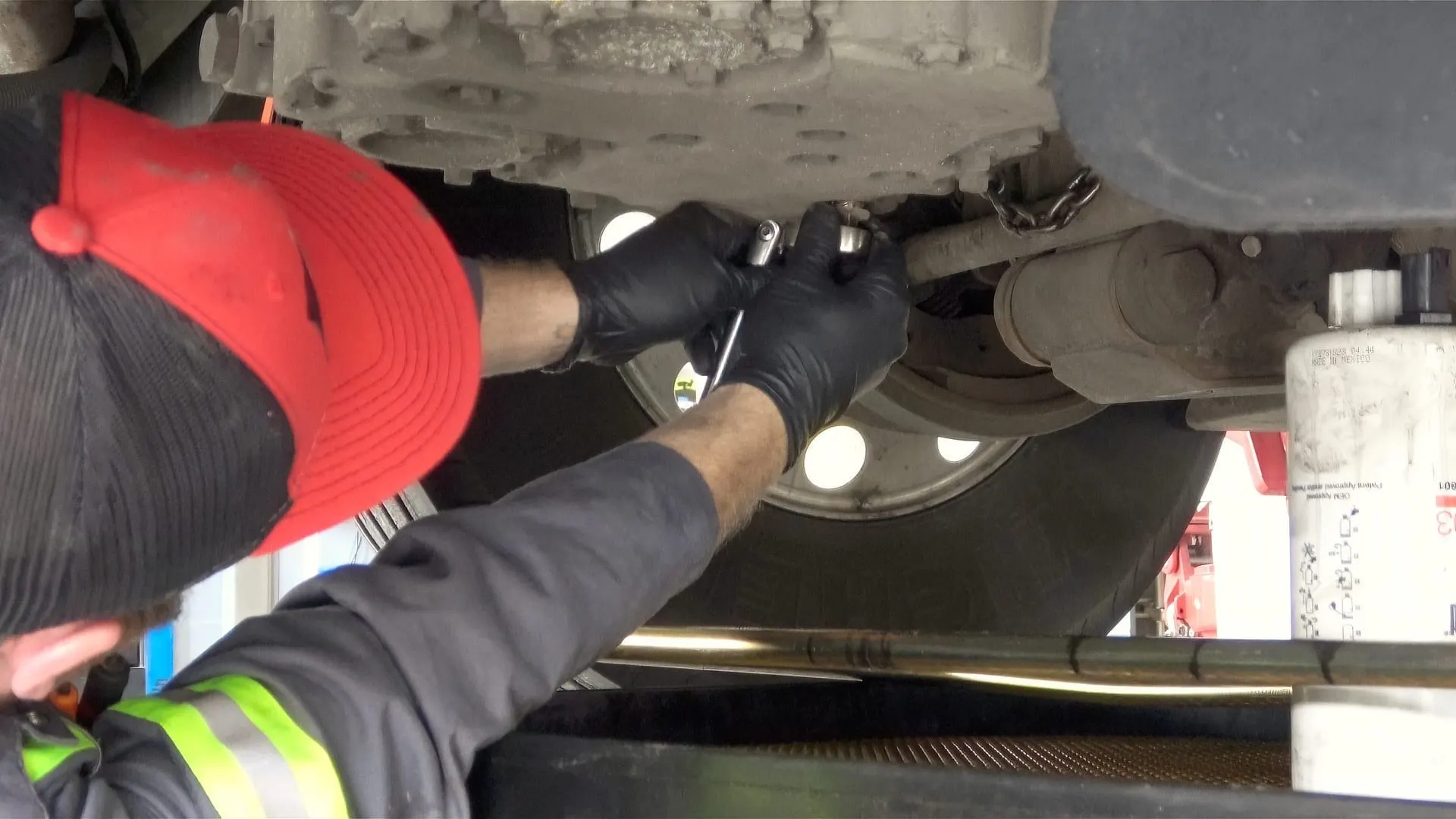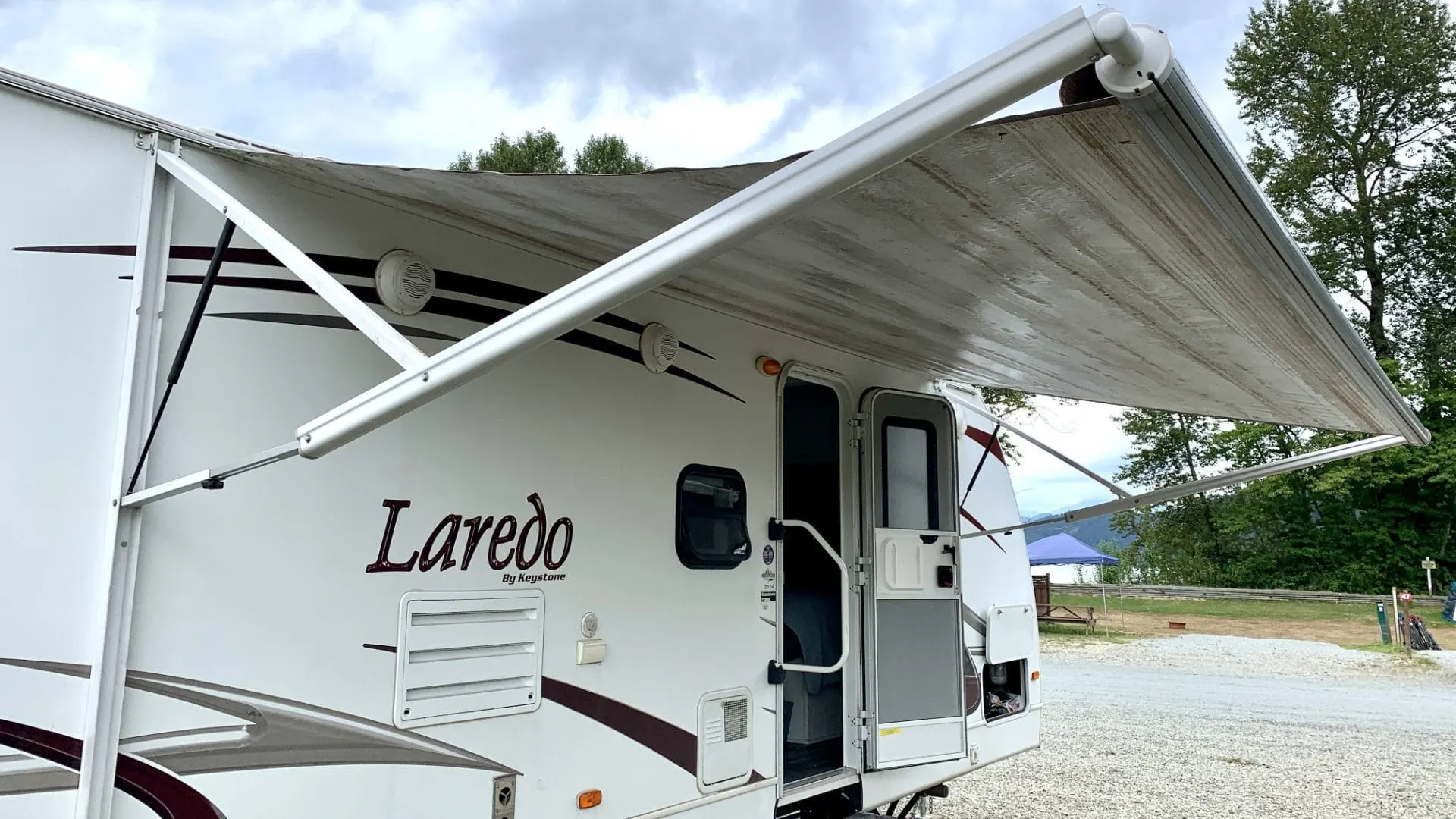When shopping for an RV, there are many things to look for regarding liveability and driveability. First, of course, you’ll want a floor plan that suits your needs, and you’ll want to be sure you’re comfortable driving and parking the rig. But one of the most important aspects of RV shopping is an RV inspection.
You’ll do a great job assessing the rig’s suitability for your family’s lifestyle, but the perspective of an experienced professional is the real provider of peace of mind. Not only can a good inspection save you from a bad experience, but it can also help you to negotiate the fairest price and can even assure your family’s safety. That’s why we’re devoting today’s post to the benefits of an RV inspection before buying.
What is an RV Inspection?
An RV inspection allows a professional to look at the most important aspects of your potential home-on-wheels, including mechanical and house components. Bearing in mind that an RV is part house and part vehicle, this can be a relatively complex process and may involve more than one professional during the same inspection process.
Certified RV inspectors are trained to look at everything from the engine to the plumbing (and everything in between). Other RV inspections may find one professional looking at the vehicle portion of the RV and a separate professional looking at the house components.

A professional RV inspection will cover every aspect of the vehicle and house portions of an RV, including the proper operation of systems you might not even think to assess when shopping.
Either way, an RV inspection should cover all aspects of the house and vehicle portions of an RV.
What is Included in an RV Inspection?
A thorough RV inspection will involve a test drive (often with the inspector riding along while you, or the RV’s current owner, drive… for liability reasons) to listen for odd sounds, feel for any vibrations or driving issues, and assess any visible concerns. The chassis will be fully inspected for rust and other issues, and all hoses and belts will be checked for integrity.
It will also include a complete fluid check (engine and transmission oil, power steering, coolant, brake master cylinder, etc.) and should come with a thorough analysis of the same fluids (if this is optional, opt for it!). This kind of testing is important as it could uncover a hidden issue in the engine, cooling system, transmission, etc. that hasn’t yet reared its head or needed repair. Finally, the inspector should also perform testing of the suspension and braking systems.
A good RV inspection will also look carefully at all house systems such as plumbing, electrical, appliances, generator, LP (propane) gas systems, fresh, grey, and black tanks, and all audio and video systems on board.
An assessment of critical areas such as the roof and walls will also be included in a thorough RV inspection, and this alone can be a disaster-saving intervention.
The Benefits of Paying for an RV Inspection
The benefits of paying for an RV inspection can not be overstated. You’re making a significant investment, and, more importantly, you and your family will be traveling and living in the rig you’re considering.
Making sure all systems and appliances work well may be a matter of convenience and helping you to understand what constitutes a fair price, but making sure the vehicle is sound and reliable and that the house systems are safe for operation, is critical to your safety and that of any loved ones traveling with you.
Third-Party Perspective
A third-party perspective offers something critical to any significant purchase, and that is an unbiased view of the overall integrity of the item being considered, in this case, an RV.
The seller has the bias of wanting to sell the rig, and you have the bias of wanting to buy one just like it. Unfortunately, such biases leave us ready to overlook or minimize certain issues that a third party has no interest in sugarcoating.
An independent third-party perspective is most likely to be the truest perspective because there’s no incentive for the inspector to make any kind of determination at all. Instead, they will be paid the same amount of money regardless of the inspection’s result.
Peace of Mind
Knowing the precise condition of the RV both mechanically and in terms of house systems operations is critical to a successful purchase that is unlikely to leave you with any significant surprises after you drive away from the seller’s lot or driveway.

Understanding the mechanical condition of an RV purchase you’re considering is crucial to price negotiation and, more importantly, your safety.
The peace of mind that’s offered by an independent assessment of all aspects of your potential home on wheels is priceless. Imagine if your RV inspector uncovers a serious issue related to water damage or mold within the walls or roof of the RV that you might not have noticed with the eyes of a potential buyer. Imagine spending the money you’ve saved for an RV and discovering on your first trip that you’ve got an unhealthy environment that can’t be used for your intended traveling adventures!
This could happen whether you’re buying “as is” from a private seller or even if you’re buying from an RV dealership. And it would be a disaster that could have been avoided with a good, independent, professional RV inspection.
Ensure a Fair Price
The revelation of any current issues ahead of the purchase allows you to negotiate a fair price for your purchase.
For example, if you know in advance that the RV’s fridge requires replacement, and the rig will soon require $1,200 in maintenance, you’ll be able to ensure a fair price taking these issues into account when negotiating with the owner.
Where Can You Get an RV Inspection?
Many RV dealers and mechanics provide RV inspections, as do some mobile RV repair technicians. But if you’re looking for a certified, credentialed RV inspector, consider consulting the NRVIA (National Recreational Vehicle Inspectors Association) to locate a certified RV inspector near you or in the area where the RV you’re considering is located.
With due respect to RV dealerships and sellers everywhere, we suggest never relying on an inspection from the RV dealer selling the rig due to issues of potential bias noted earlier in this post.
How Much Does an RV Inspection Cost?
RV inspections vary in cost depending on several particulars, including location and how complex the systems are on the RV you’re considering.
For example, a thorough inspection of a diesel pusher with a complex electronics system (including a generator, solar system, large battery bank, inverter, etc.) will cost more than an inspection of a Class B campervan or a small towable camper.
But in general, an RV inspection can cost anywhere from about $150 to over $1,000, depending on the RV being inspected and its location.
Is Getting an RV Inspection Worth It?
Resoundingly, we say YES!
An RV inspection from a thorough, professional RV technician is worth every penny.

A thorough RV inspection can reveal issues that could be used for negotiating price, such as a worn-out patio awning.
The money this process could save you in terms of the purchase price, repairs, or a costly mistake is well worth the investment. In addition, the headaches, inconveniences, and even safety issues an RV inspection could uncover make the process all the more worthwhile.
Conclusion
We don’t usually speak in absolutes, but we’ll make an exception here by stating that we unequivocally recommend pre-purchase inspections of any used RV.
We want your money to be protected, and we want you to avoid having to endure inconveniences or difficulties during what should be a joyous time. But your safety and that of your family is the number one reason not to forego this important process before buying – and driving – an RV with precious cargo in tow.
Geek Out with Us Every Week
Join our newsletter to learn about all things RV-related. Every week we offer free tips, tricks, product reviews, and more to our online community of RVers. So whether this is your first time on the road or you’re a seasoned expert, we’d love for you to geek out with us!


Dr. Michael
Tuesday 3rd of August 2021
Our inspector spent over 8 hours inspecting our coach, the final report was over 125 pages, and cost $1345. He discovered several trivial issues but nothing major. We requested the dealership to have the issues be resolved before we picked up the vehicle and these were in the written agreement. When we went to take our coach home, nothing was done. We had the option of having the work done on our own or not taking the coach as they had plenty of other buyers waiting. We took the coach and made the simple corrections ourselves and the more challenging ones we went to NIRVC (Atlanta). One item that was not mentioned in the article, but should be mandatory is to have all fluids (engine oil, coolant, transmission, Aqua Hot, generator oil & coolant) sent to a laboratory for analysis. We had this performed and it bumped the price about $300 (otherwise the inspection would have been $1,045).
TheRVgeeks
Tuesday 3rd of August 2021
Thanks for that info, Michael. Glad to hear there wasn't anything significant that needed to be fixed on your new coach, but sorry to hear the dealership didn't get it fixed as they had promised. All-too-familiar a story, unfortunately!
And excellent point about having fluids tested, that's definitely something to include as part of an inspection. Money well spent, since it can identify if there are any major issues that haven't reared their heads yet!
Safe travels!